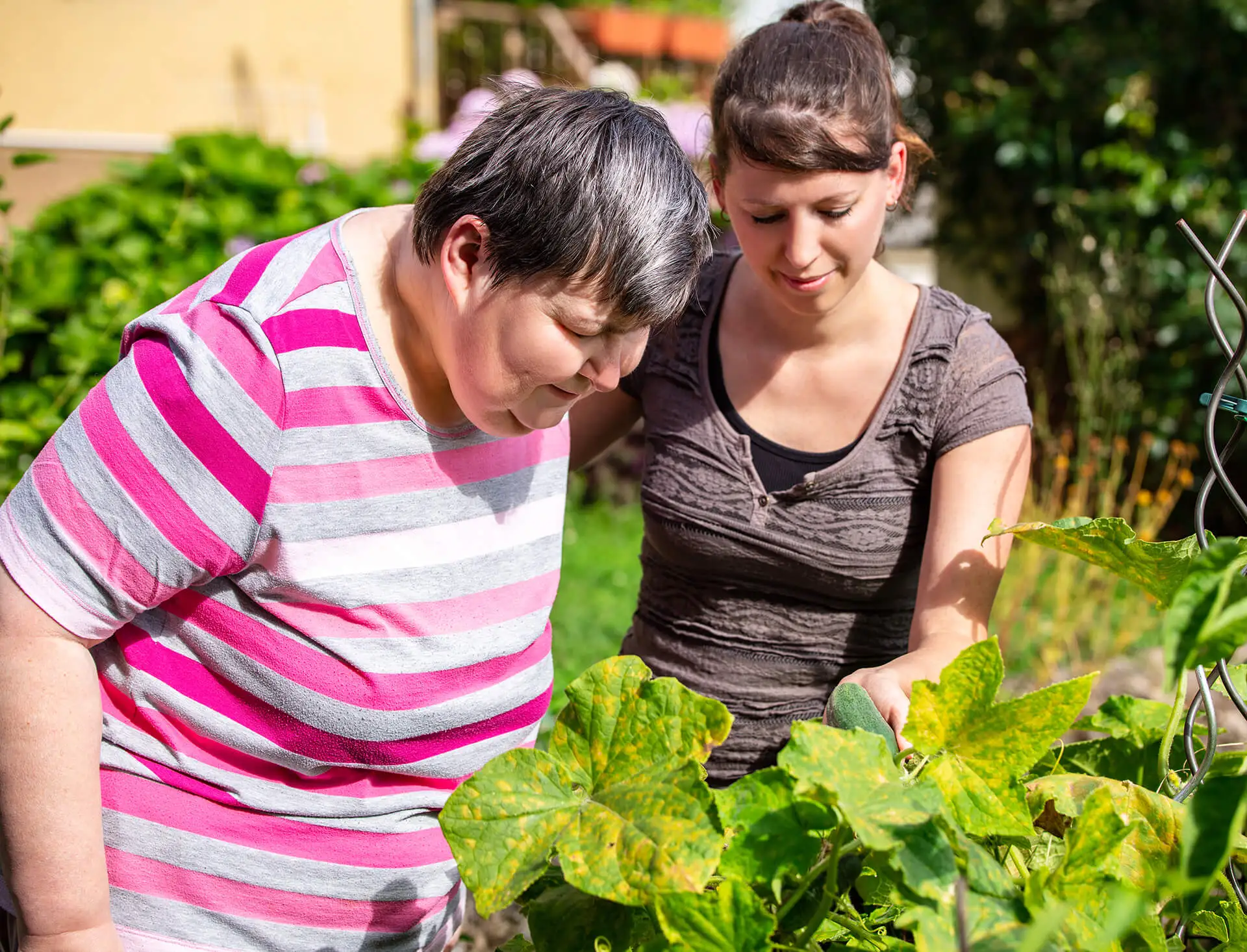Learn About Vision Impairment and Related Care Options
Vision impairment affects hundreds of thousands of Australians, with varying degrees of sight loss impacting daily living, mobility, and independence. Understanding the different types of vision impairment and available support options is crucial for individuals, families, and caregivers navigating this journey.
Understanding Vision Impairment
Types of Vision Impairment
Legal Blindness
- Visual acuity of 6/60 or worse in the better eye with best correction
- Visual field restricted to 20 degrees or less
- Significant impact on daily functioning and independence
Low Vision
- Visual acuity between 6/12 and 6/60 in the better eye with best correction
- May include partial sight, tunnel vision, or central vision loss
- Often benefits from vision aids and adaptive techniques
Complete Blindness
- Total absence of light perception
- Requires comprehensive support systems and adaptive strategies
- Focus on developing non-visual skills and independence
Common Causes of Vision Impairment
Age-Related Conditions
- Macular degeneration affecting central vision
- Glaucoma causing peripheral vision loss
- Diabetic retinopathy from diabetes complications
- Cataracts clouding the lens of the eye
Genetic and Congenital Conditions
- Retinitis pigmentosa causing progressive vision loss
- Albinism affecting pigmentation and vision
- Congenital cataracts or glaucoma
- Cortical visual impairment from brain injury
Acquired Conditions
- Stroke affecting visual processing areas
- Traumatic brain injury impacting vision
- Eye injuries from accidents or trauma
- Infections affecting the eye or optic nerve
NDIS Support for Vision Impairment
Eligibility and Assessment
NDIS Access Requirements Vision impairment may qualify for NDIS support if it:
- Is permanent or likely to be permanent
- Significantly impacts daily living activities
- Requires ongoing support to maintain independence
- Affects participation in community and social activities
Assessment Process
- Ophthalmologist reports documenting vision loss
- Functional capacity assessments showing impact on daily life
- Evidence of how vision impairment affects work, education, or social participation
- Reports from orientation and mobility specialists
NDIS Funding Categories for Vision Impairment
Core Supports - Assistance with Daily Life
- Personal care assistance for daily living tasks
- Domestic assistance including cleaning and meal preparation
- Community access support for shopping and appointments
- Transport assistance for independence and safety
Capacity Building - Choice and Control
- Support coordination to navigate services and funding
- Plan management assistance for financial administration
- Independent living skills training and development
- Goal setting and achievement support
Capacity Building - Daily Activities
- Orientation and mobility training for safe navigation
- Vision rehabilitation and adaptive techniques
- Use of assistive technology and equipment training
- Home modification assessments and recommendations
Capacity Building - Social and Community Participation
- Group programs and community activities
- Peer support and social connection opportunities
- Recreation and leisure activity participation
- Volunteer work and community engagement support
Capital Supports - Assistive Technology
- Screen reading software and voice output devices
- Magnification equipment and lighting solutions
- Braille displays and tactile learning tools
- Smart home technology for increased independence
Capital Supports - Home Modifications
- Improved lighting throughout the home
- Tactile markers and high-contrast surfaces
- Safety modifications including handrails and non-slip surfaces
- Kitchen and bathroom adaptations for safe use
Support Services for Vision Impairment
Vision Australia Services
Orientation and Mobility Training
- Safe travel techniques using white canes or guide dogs
- Public transport navigation and route planning
- Spatial awareness and environmental familiarization
- Confidence building for independent movement
Daily Living Skills Training
- Kitchen safety and cooking techniques
- Personal care and grooming adaptations
- Home organization and labeling systems
- Money management and shopping strategies
Technology Training
- Screen reader software and smartphone accessibility
- Computer skills and internet navigation
- Assistive apps for daily living tasks
- Smart home device setup and operation
Employment Support
- Workplace assessments and accommodation recommendations
- Job search assistance and interview preparation
- Technology training for work-related tasks
- Liaison with employers for inclusive employment
Guide Dogs Australia
Guide Dog Services
- Comprehensive assessment for guide dog suitability
- Intensive training programs with qualified instructors
- Ongoing support and follow-up services
- Guide dog retirement and replacement services
Orientation and Mobility Programs
- White cane training for independent travel
- Spatial awareness and navigation techniques
- Public transport training and confidence building
- Route planning and environmental awareness
VisAbility (WA) and Other State Services
Individual Support Services
- Personal care assistance from trained support workers
- Domestic assistance and home management support
- Community access and social participation programs
- Respite care for individuals and families
Group Programs and Activities
- Social clubs and recreational activities
- Educational workshops and skill development
- Peer support groups and mentoring programs
- Community events and cultural activities
Assistive Technology for Vision Impairment
Low Vision Aids
Magnification Devices
- Hand-held and stand magnifiers for reading
- Electronic video magnifiers with adjustable settings
- Telescopic aids for distance viewing
- Computer screen magnification software
Lighting Solutions
- Task lighting for reading and detailed work
- High-contrast lighting throughout the home
- Portable lighting devices for use anywhere
- Light therapy devices for specific conditions
Technology Solutions
Screen Reading Software
- JAWS (Job Access With Speech) for comprehensive computer access
- NVDA (NonVisual Desktop Access) free screen reading software
- VoiceOver for Apple devices and accessibility
- TalkBack for Android device navigation
Mobile Apps and Devices
- Be My Eyes for real-time visual assistance
- Seeing AI for object and text recognition
- Voice Dream Reader for accessible reading
- KNFB Reader for text-to-speech conversion
Smart Home Technology
- Voice-activated assistants for home control
- Smart lighting systems with voice commands
- Talking devices for time, weather, and reminders
- Automated home security and monitoring systems
Daily Living Strategies
Home Safety and Organization
Kitchen Adaptations
- Talking measuring devices and kitchen timers
- High-contrast cutting boards and utensils
- Tactile markers for appliance settings
- Organized storage systems with consistent placement
Bathroom Safety
- Contrasting towels and bath products for visibility
- Non-slip surfaces and grab rails for safety
- Talking scales and personal care devices
- Consistent organization of toiletries and medications
General Home Modifications
- Improved lighting throughout all living areas
- High-contrast tape on step edges and obstacles
- Consistent furniture placement and clear pathways
- Tactile labeling systems for switches and controls
Communication and Information Access
Reading and Writing Aids
- Large print books and documents
- Braille learning and reading materials
- Audio books and digital talking book services
- Voice recording devices for notes and reminders
Telephone and Communication
- Talking caller ID and answering machines
- Large button or voice-activated phones
- Video calling for visual communication support
- Text-to-speech email and messaging services
Community Support and Resources
Local Support Organizations
Vision Loss Support Groups
- Peer support and shared experience groups
- Family support and education programs
- Social activities and community connections
- Advocacy and awareness initiatives
Recreation and Leisure Programs
- Adaptive sports and physical activity programs
- Art and creative programs with tactile elements
- Book clubs and literary discussion groups
- Travel and tourism programs for vision impaired individuals
Professional Support Services
Low Vision Clinics
- Comprehensive eye examinations and assessments
- Prescription of low vision aids and devices
- Training in use of visual aids and techniques
- Coordination with other healthcare providers
Rehabilitation Services
- Vision rehabilitation therapy
- Occupational therapy for daily living skills
- Physiotherapy for mobility and strength
- Psychology services for adjustment and mental health
Financial Support and Funding
Government Support Programs
Disability Support Pension
- Income support for people with permanent blindness
- Automatic qualification for vision impairment meeting criteria
- Additional support through pharmaceutical and energy concessions
- Access to public transport concessions and discounts
Carer Support
- Carer Payment for full-time caregivers
- Carer Allowance for additional support costs
- Respite care funding for family caregivers
- Carer Gateway services for information and support
Private Health Insurance
Extras Cover
- Optical services and eye examinations
- Low vision aids and assistive devices
- Some rehabilitation services and therapies
- Coordination with Medicare and other funding sources
Charitable and Community Funding
Equipment and Technology Grants
- Vision Australia equipment loan library
- Local service club grants for specific needs
- Foundation grants for assistive technology
- Community fundraising for individual support
Creating an Inclusive Environment
Family and Carer Support
Education and Training
- Understanding vision impairment and its impacts
- Communication techniques and assistance methods
- Safety considerations and environmental modifications
- Emotional support and adjustment strategies
Respite and Support Services
- Professional respite care for family caregivers
- Support groups for families and carers
- Educational workshops and information sessions
- Coordination with professional support services
Workplace Inclusion
Reasonable Adjustments
- Screen reading software and adaptive technology
- Improved lighting and workspace modifications
- Flexible work arrangements and scheduling
- Colleague awareness and support training
Career Development
- Skills training and professional development opportunities
- Mentoring and networking programs
- Advocacy for inclusive employment practices
- Transition support for career changes
Planning for the Future
Progressive Conditions
Early Planning and Preparation
- Learning adaptive skills while maintaining some vision
- Establishing support networks and professional relationships
- Home modifications and technology setup
- Financial planning and support arrangement
Ongoing Assessment and Adjustment
- Regular reviews of support needs and goals
- Technology updates and skill development
- Social and community connection maintenance
- Health monitoring and medical management
Emergency Preparedness
Safety Planning
- Emergency evacuation procedures and assistance
- Medical emergency information and contacts
- Backup systems for power outages and technology failures
- Community support network activation plans
Conclusion
Vision impairment presents unique challenges, but with proper support, assistive technology, and adaptive strategies, individuals can maintain independence, pursue their goals, and participate fully in community life. The combination of NDIS funding, specialized services, assistive technology, and family support creates a comprehensive framework for addressing the diverse needs of people with vision impairment.
Whether you’re newly diagnosed with vision loss, supporting a family member, or working with someone with vision impairment, understanding available options and resources is the first step toward creating effective support plans. Professional assessment, appropriate funding, and coordinated services can significantly improve quality of life and independence.
Getting Started
If you or someone you know is dealing with vision impairment:
- Seek Professional Assessment: Contact an ophthalmologist and vision rehabilitation services
- Explore NDIS Eligibility: Speak with NDIS planners about potential support and funding
- Connect with Specialized Services: Contact Vision Australia or local vision support organizations
- Consider Assistive Technology: Explore devices and aids that can enhance independence
- Build Support Networks: Connect with peers, families, and professional support services
Remember, vision impairment doesn’t define limitations – with the right support and resources, individuals can achieve their goals and live fulfilling, independent lives.
For personalized information about vision impairment support services and NDIS funding options, contact MD Homecare. Our experienced team can help you navigate available resources and develop appropriate support plans tailored to individual needs and goals.


